How to Grow Your Personal Brand on Social Media: Essential Tips
As competition intensifies in numerous industries, standing out online is becoming more difficult. One way to address these challenges is with personal branding.
Creating a personal brand allows you to position yourself as an expert over time. But beyond that, you can also show off why you would be a pleasure to work with and your unique characteristics.
Are you thinking about developing your personal brand but don't know where to start? This guide will help you build an authentic social media presence.
What Is Personal Branding on Social Media?
Personal branding on social media means that you build your profiles around your interests. Your brand could relate to your hobbies, career, or a cause you feel strongly about.
With personal branding, the aim is to become known within a specific area or selection of fields. You can use platforms to create content that demonstrates your expertise, along with building communities.

Some people associate personal branding on social media directly with being an influencer. In some cases, this is true. But if you don't want to be one, you can use your brand to simply join conversations.
Now you have an idea of what personal branding on social media means, here are some tips to get started with building yours...
Establish Perimeters
Effective personal branding requires having definitive goals and interests. But don't limit yourself to what others may think is "cool" or like about you. If you're a comic book nerd, embrace that.
You don't need to worry about how diverse your interests are from one another. If you like technology, wildlife, and being outdoors, you can build relationships in all of those areas.
When choosing your interests, it's a good idea to focus on what you want to be known for and who you'll connect with.
This doesn't mean you can never post anything that veers away from your "designated" interests. But in general, your social media accounts shouldn't look disjointed.
Identify Your Unique Selling Points
Of course, your skills are important. If you can't do a particular job, your chances of getting hired are minimal. But beyond that, you should think about why people would want to work with you as a person.

Do you have a great sense of humor? Are you learning a new language that could help someone expand into a new market? Do you enjoy doing graphic design in your spare time?
By thinking outside the box, you'll ensure that your personal brand is more authentic and exciting to others.
Pick Your Platforms to Network On
Tools and content won't do you any good if you don't create relationships. And it's important that you don't just talk about yourself, but seek out other awesome individuals.
When networking, be authentic and yourself with others. If you try to come across as someone you're not, people will see right through it and it's a huge turn-off.
Below are some ideas for choosing the right platforms to network on.
Social Media Groups
Facebook and LinkedIn both have places that can be powerful resources to connect and interact with other like-minded people. These groups range from local networks to worldwide communities.
Facebook Groups tend to be built around a specific region or topic of interest. In some cases, they can be both. One example is the "Northwest Partners in Amphibian and Reptile Conservation" below.
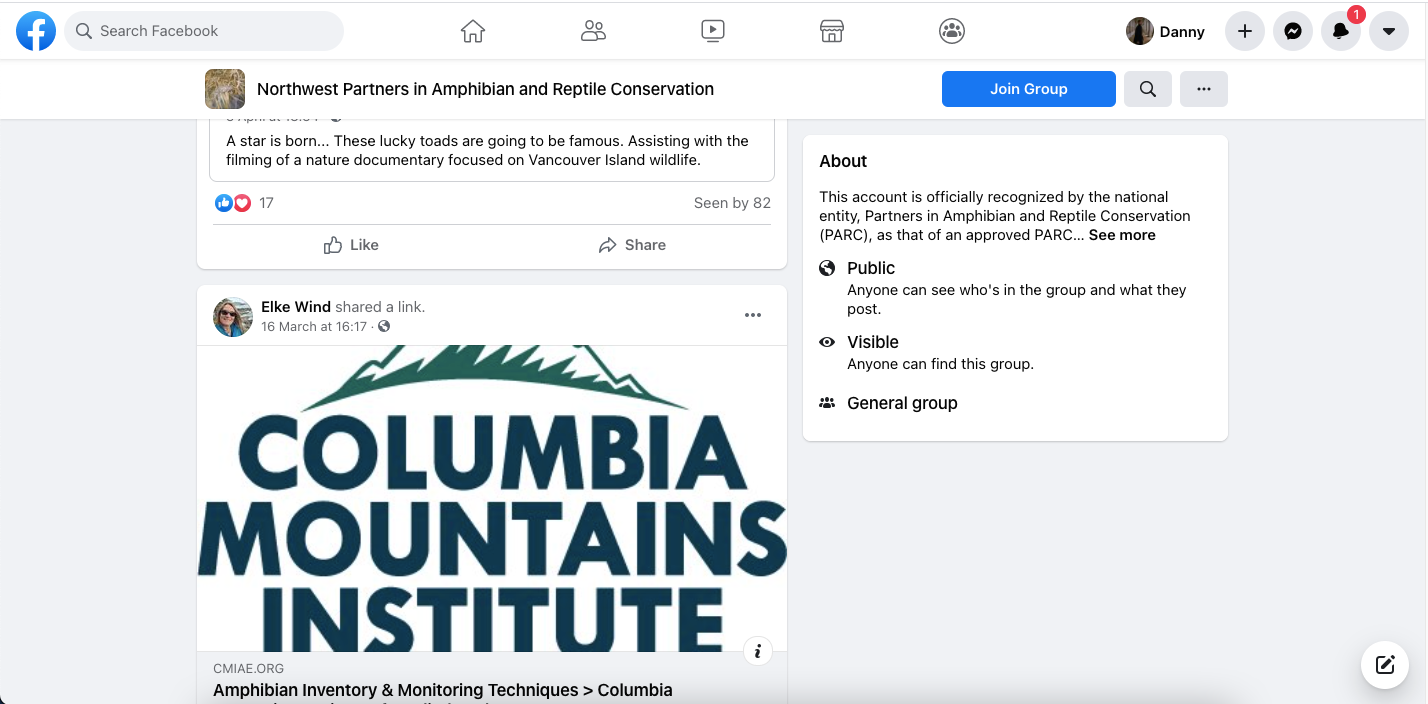
Facebook groups can help establish in-person meet-ups and relationships, especially when they're region-specific.
LinkedIn groups are also a great place to network. It's important to remember, though, that many don't have participation as consistent as Facebook. Regardless, they are helpful for connecting with other professionals in your field.
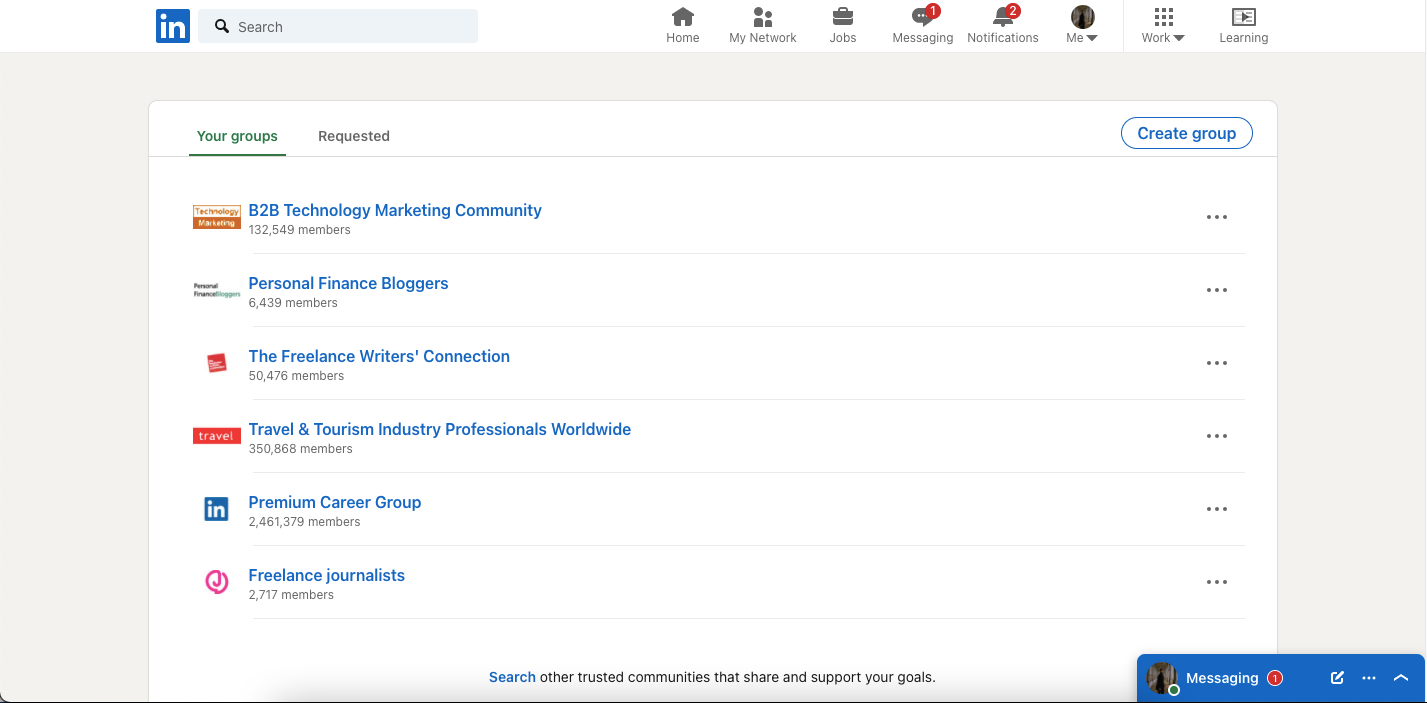
Twitter doesn't have a specific "group" people can all join. However, it's a great way to reach out and connect with complete strangers.
On Twitter, you can share regular updates related to your interest. Over time, you'll attract an audience that likes the same kind of things that you do. You can also share other people's content by retweeting it onto your feed.
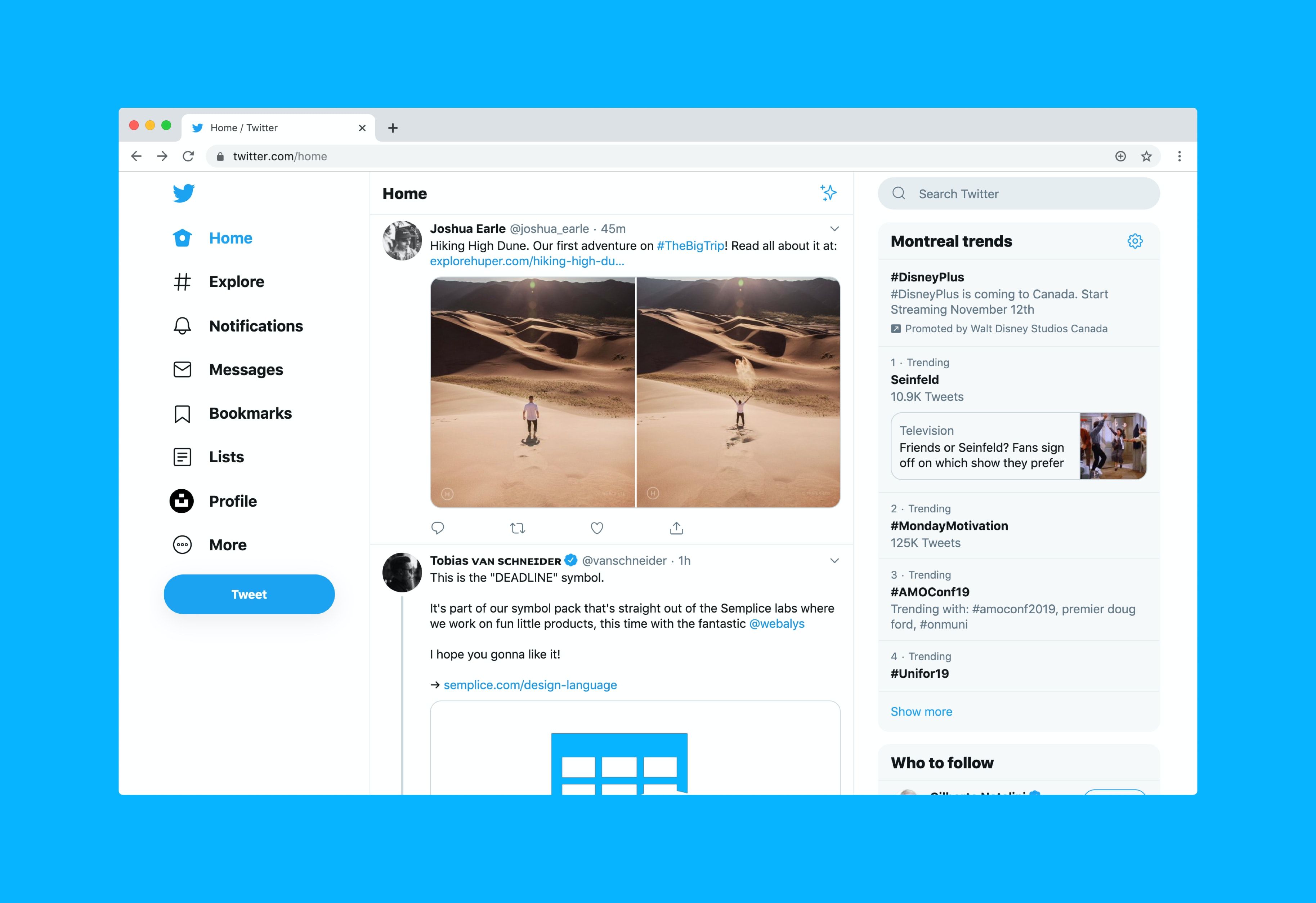
One nice thing about Twitter is how you can be a bit more flexible with your personal branding. Beyond your profession, the platform is a great place to show off and talk about your hobbies.
Choosing Brand Aesthetics
To create a powerful personal brand on social media, aesthetics matter. Your profiles should reflect your values and give an insight into what you're like as an individual.
When picking brand aesthetics, simpler is better. Choose a few colors that resonate with you, and adopt an image style that portrays what you want to show. If you're going for a more corporate feel, a suit or blouse may work; in the creative industries, smart casual is the way to go.
You can also create consistent aesthetics by using graphic creator platforms like Canva.
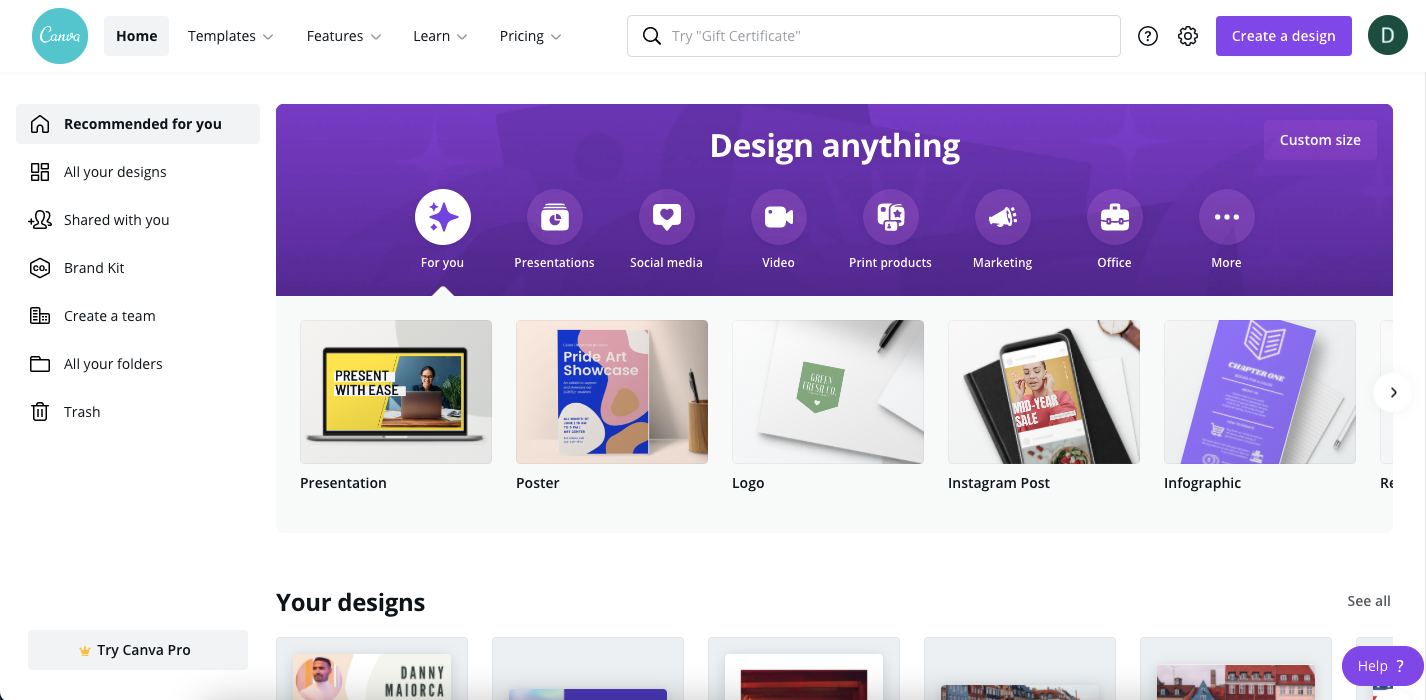
Beyond pictures, it's important to think about your overall theme. Below are some areas to pay particular attention to.
Your Bio
The ideal bio is short and sweet, but also interesting and unique.
Though typically left unedited for long bouts, your bio isn't something permanent. Interests change. Goals change. And your approach with your online presence may even change.
Your bio is how you quickly summarize and grab the attention of others, working like an intro to a story or article.
Username
In general, you want your username to be relevant and consistent across all platforms. It's not the end of the world if they aren't, but is easier to find someone if they have the same or similar name for all social media websites.
One tool for discovering consistent usernames is NameChk.
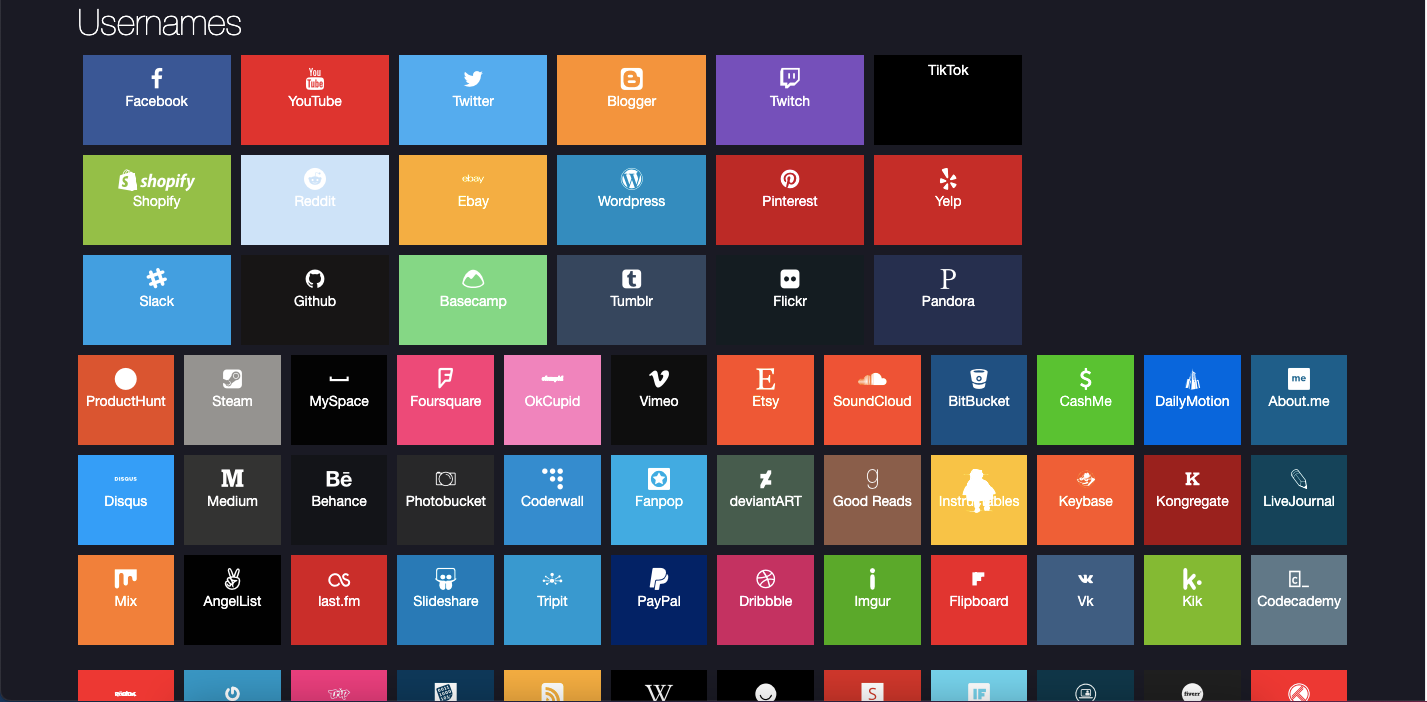
Things to Avoid When Creating Your Personal Brand
There are also certain things that you should avoid when growing your personal brand.
Since you want to become known as an expert for something, talking about topics you know little about is not a good idea. Instead, stick to what you know and build your knowledge over time through courses, podcasts, and reading.
You should also try to avoid getting too obsessed with vanity metrics. Likes, follows, and comments are great, but your content will feel forced if those are your only focus.
Instead of focusing on likes, turn your attention towards building connections and creating the type of content you want to share.
Start Somewhere and Adapt Later
For many people, the biggest barrier to creating a personal brand on social media is getting started.
Personal branding requires constant growth and change. To do this, you must find what works best for you, continue to expand your knowledge, and stay consistent in doing so.
Pick a starting point and set attainable goals. And remember that building a personal brand takes time, so be patient. Eventually, you'll position yourself as an expert in your field.
source https://www.makeuseof.com/tag/minimalist-guide-personal-branding-social-media/
Post a Comment for "How to Grow Your Personal Brand on Social Media: Essential Tips"
Comment when there are difficulties